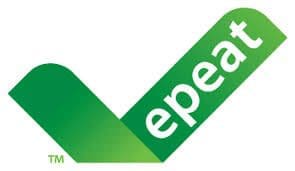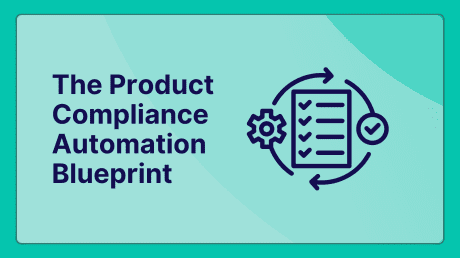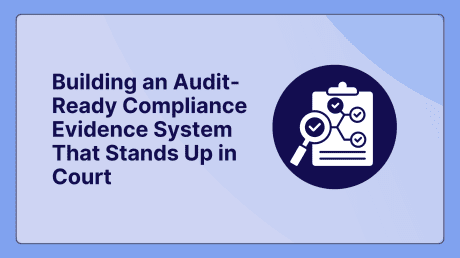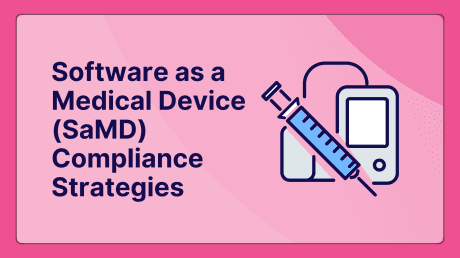
EPEAT Ecolabel Criteria for Computers and Displays Updated

 The Green Electronics Council (GEC) has updated the EPEAT ecolabel product criteria for computers and displays. Effective from 29th June 2019 computers and displays must comply with criteria based on Standard 1680.1-2018 – IEEE Standard for Environmental and Social Responsibility Assessment of Computers and Displays in order to qualify for EPEAT certification. The 2009 version IEEE Standard 1680.1 is no longer accepted under EPEAT conditions. Computers and displays that meet the 2009 product requirements have been archived under EPEAT and no longer meet EPEAT procurement requirements.
The Green Electronics Council (GEC) has updated the EPEAT ecolabel product criteria for computers and displays. Effective from 29th June 2019 computers and displays must comply with criteria based on Standard 1680.1-2018 – IEEE Standard for Environmental and Social Responsibility Assessment of Computers and Displays in order to qualify for EPEAT certification. The 2009 version IEEE Standard 1680.1 is no longer accepted under EPEAT conditions. Computers and displays that meet the 2009 product requirements have been archived under EPEAT and no longer meet EPEAT procurement requirements.
Recognizing that smaller enterprises may need extra time to transition to the new requirements and get all their EPEAT documentation in order, the GEC has decided to publish a list of “Transitioning Micro, Small and Medium Manufacturers” on the EPEAT Registry. These are manufacturers that are working towards meeting the 2018 computer and displays criteria but need an additional six months to obtain the necessary documentation. So although their products have not yet met the criteria of the 2018 Computers & Displays Category, they are expected to have products within that category by January 2020. This list will be available until 31 December 2019.
The EPEAT 2018 product criteria for computers and displays contains both required and optional criteria as follows:
1. Substance Management Required
1.1 (Required) – Conformance with European Union RoHS Directive substance restrictions
1.2 (Required) – Elimination of intentionally added mercury in light sources
1.3 (Required) – Reduction of bromine and chlorine content in plastic parts > 25g
1.4 (Required) – Compliance with provisions of EU Battery Directive Optional Criteria
1.5 (Optional) – Restriction on the use of cadmium
1.6 (Optional) – Restriction of the use of beryllium
1.7 (Optional) – Further reduction of bromine and chlorine content of plastic materials
1.8 (Optional) – Avoidance or elimination of substances on EU REACH Annex XIV (authorization list)
1.9 (Optional) – Reduction of substances on the EU REACH Candidate List of SVHCs
1.10 (Optional) – Chemical assessment and selection
1.11 (Optional) – IEC 62474 declarable substances
1.12 (Optional) – Requesting substance inventory
1.13 (Optional) – Acquiring substance inventory
1.14 (Optional) – Reduce fluorinated gas emissions from flat panel display manufacturing
1.15 (Optional) – Reduce fluorinated greenhouse gas emissions from semiconductor production
2. Materials selection
2.1 (Required) – Minimum post-consumer recycled plastic, ITE-derived post-consumer recycled plastic or bio-based plastic content
2.2 (Optional) – Higher post-consumer recycled plastic, ITE-derived post-consumer recycled plastic, or bio-based plastic content
2.3 (Optional) – ITE derived post-consumer recycled plastic content
3. Design for end of life
3.1 (Required) – Identification of materials and components requiring selective treatment
3.2 (Required) – Plastic parts compatible with recycling
3.3 (Required) – Plastic parts separable for recycling
4. Product longevity / life cycle extension
4.1 (Required) – Service support
4.2 (Required) – Removal of external enclosure
4.3 (Required) – Spare parts
4.4 (Required) – Battery replacement and information
4.5 (Optional) – Long life rechargeable battery
4.6 (Optional) – Publicly available service information
4.7 (Optional) – Product upgradeability and reparability
4.8 (Optional) – Removal of lithium ion batteries
5. Energy conservation
5.1 (Required) – Conformance to current ENERGY STAR® program requirements
5.2 (Required) – Lowest power mode limit Optional Criteria
5.3 (Optional) – Energy efficiency for internal power supplies
5.4 (Optional) – Energy efficiency for external power supplies exceeding International External Power Supply Efficiency Level VI
5.5 (Optional) – Product energy consumption less than the ENERGY STAR® Maximum energy limit
6. End-of-life management
6.1 (Required) – Provision of product take-back services
6.2 (Required) – Provision of a removable rechargeable battery take-back program
6.3 (Required) – End-of-life processing
7. Packaging Required Criteria
7.1 (Required) – Elimination of intentionally added heavy metals in packaging
7.2 (Required) – Elimination of elemental chlorine as a bleaching agent in packaging material
7.3 (Required) – Separable packaging material
7.4 (Required) – Plastics marked in packaging materials
7.5 (Required) – Recycled content in wood-based fiber packaging
7.6 (Optional) – Packaging composed of recycled, and/or bio-based, and/or sustainably forested content
7.7 (Optional) – Offering of a bulk packaging option
8. Life cycle assessment and carbon footprint
8.1 (Optional) – Product life cycle assessment and public disclosure of analysis
8.2 (Optional) – Product specific greenhouse gas emissions – product carbon footprint
8.3 (Optional) – Corporate carbon footprint
8.4 (Optional) – Greenhouse gas emissions from product transport
9. Corporate environmental performance
9.1 (Required) – Third party certified environmental management system (EMS) for design and manufacturing organizations
9.2 (Required) – Corporate environmental performance reporting by manufacturer
9.3 (Optional) – Third party certified environmental management system (EMS) for supplier manufacturing facilities
9.4 (Optional) – Corporate environmental performance reporting by suppliers
9.5 (Optional) – Energy management system/energy performance improvement – manufacturers
9.6 (Optional) – Energy management system/energy performance improvement for suppliers
9.7 (Optional) – Renewable energy use by manufacturer
9.8 (Optional) – Renewable energy use by manufacturer suppliers
10. Corporate social responsibility
10.1 (Required) – Public disclosure regarding conflict minerals in products Optional Criteria
10.2 (Optional) – Socially responsible supplier manufacturing: Labor
10.3 (Optional) – Socially responsible manufacturing: OHS
10.4 (Optional) – Participation in an in-region program that advances responsible sourcing of conflict minerals
10.5 (Optional) – Smelter and refiner participation in OECD-aligned third party mechanisms
EPEAT is one of the leading ecolabels in the IT sector. The EPEAT program provides independent verification of manufacturers’ claims. It has an online EPEAT Registry that allows governments and institutional purchasers to evaluate, and compare approved products as part of their sustainable procurement decisions.
If you want to stay on top of global regulations from around the world, sign up to our newsletter today!








